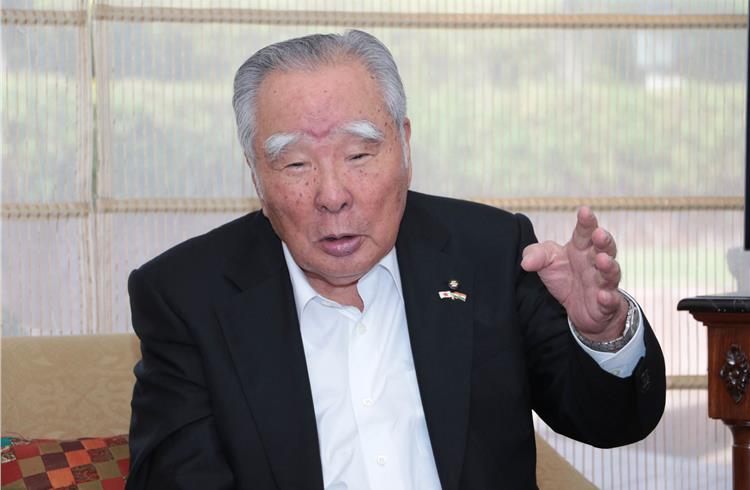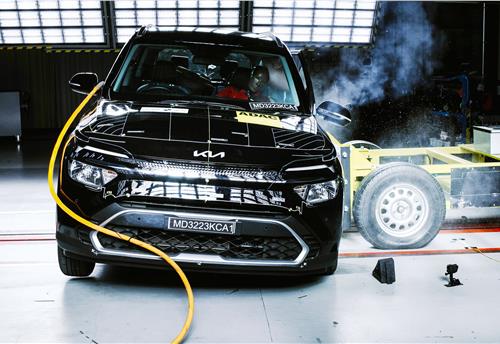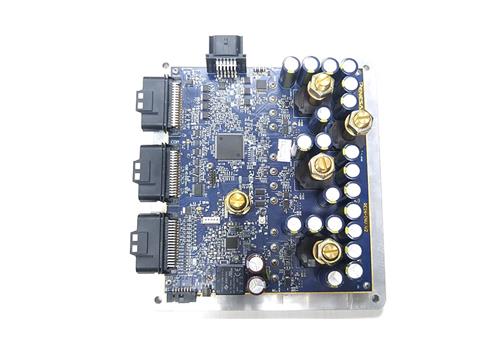Osamu Suzuki favours emission reduction over ban
The solution to reducing pollution levels lies in developing technologies to reduce exhaust fumes, be it diesel or petrol. This affirmation has also come from Osamu Suzuki, chairman, Suzuki Motor Corporation.
Maruti Suzuki India, the country’s largest carmaker, is largely unaffected by the ongoing ban on 2,000cc and above diesel engines in Delhi-NCR and more recently in Kerala. The ban, first announced by the Supreme Court in December 2015, was a result of rising pollution levels in the capital city and in other cities in India.
However, more than the ban, the solution lies in developing technologies to reduce exhaust fumes, be it diesel or petrol. This affirmation has also come from Osamu Suzuki, chairman of Suzuki Motor Corporation (SMC), the parent company of Maruti Suzuki India.
In a PTI report, commenting on the ongoing ban on registration of diesel-engined vehicles of above 2,000cc in Delhi-NCR, Osamu Suzuki said, "Diesel or gasoline (petrol), rather than driving the car into these categories, you really have to think of how to reduce the overall exhaust gas from automobile. That's what we are thinking at the manufacturer’s side."
Meanwhile, as planned, Maruti Suzuki’s Gujarat plant will go on stream early next year. SMC’s wholly owned car plant in Gujarat, where a total investment of Rs 18,500 crore has been envisaged, will begin operations from next year. This plant will supply vehicles and components exclusively to Maruti Suzuki India.
"As planned, operations will start in 2017... Our plan is going accordingly," Osamu Suzuki told reporters after meeting finance minister Arun Jaitley who is on a state visit to Japan currently.
For SMC, which owns 56 percent of Maruti Suzuki India, the Indian market is critical for its growth. The company, which is Japan’s second-largest minicar manufacturer, expects the bulk of its growth to come from India, which is projected to overtake Japan and Germany by 2020 to become the third-biggest market in the world after China and the US. At present, Maruti Suzuki has a commanding 53% share in the passenger car market and a 48.35% share in the passenger vehicle market (cars, UVs and vans).
In the first phase, the Gujarat factory will have a manufacturing capacity of 250,000 vehicles per annum.
In 2015-16, Maruti Suzuki India produced a total of 1,420,081 units which was a 8.5% year-on-year growth; for the fiscal it sold 1,305,351 units, posting YoY growth of 11.50%. The company is targeting production of 2 million units by 2020. Maruti also recently began export shipments of the made-in-India Baleno both to Japan and global markets.
RELATED ARTICLES
Kia Carens gets 3-star Global NCAP rating in fresh tests
The Carens MPV, which was tested twice under the new protocol, scored zero stars for adult occupancy in the first test.
Tata Elxsi-Renesas MCU for EVs enables cost optimisation, speedier time to market
Modular, scalable design of Motor Control Unit enables integration across diverse EV applications. Claimed to be reduce ...
Bosch hydrogen engine tech-powered truck to be on Indian roads this year
The global supplier of technology and services is betting big on both electromobility and hydrogen. While announcing the...





 By Autocar Pro News Desk
By Autocar Pro News Desk
 31 May 2016
31 May 2016
 5171 Views
5171 Views









